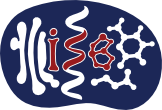Gayatri MB, Kancha RK, Patchva D, Velugonda N, Gundeti S, Reddy ABM. FEBS J. 2023 Sep;290(18):4480-4495. doi: 10.1111/febs.16818. Epub 2023 May 23.
Abstract
Imatinib is the frontline treatment option in treating chronic myelogenous leukemia (CML). Hitherto, some patients relapse following treatment. Biochemical analysis of a panel of clonally derived imatinib-resistant cells revealed enhanced glucose uptake and ATP production, suggesting increased rates of glycolysis. Interestingly, increased lactate export was also observed in imatinib-resistant cell lines. Here, we show that metformin inhibits the growth of imatinib-resistant cell lines as well as peripheral blood mononuclear cells isolated from patients who relapsed following imatinib treatment. Metformin exerted these antiproliferative effects by inhibiting MCT1 and MCT4, leading to the inhibition of lactate export. Furthermore, glucose uptake and ATP production were also inhibited following metformin treatment due to the inhibition of GLUT1 and HK-II in an AMPK-dependent manner. Our results also confirmed that metformin-mediated inhibition of lactate export and glucose uptake occurs through the regulation of mTORC1 and HIF-1α. These results delineate the molecular mechanisms underlying metabolic reprogramming leading to secondary imatinib resistance and the potential of metformin as a therapeutic option in CML.

